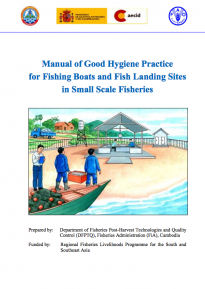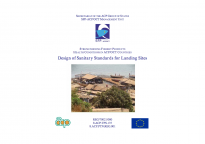Services and Infrastructure for On-board Handling in Small-Scale Fisheries
For fishers to effectively put good on-board handling practices that maintain quality and reduce waste into place, key services that should be made available to them are:
- Clean water supply for cleaning equipment and personal hygiene
- Supply of clean ice
- Service providers for fish boxes, insulated boxes, cleaning equipment
- Reliable source of electricity
- Proper Waste disposal
- Landing site management
- Engine repair, servicing and supplies
- Fuel
- Boat building and repair
- Finance
- Extension services for knowledge and skills
Investment in improved technologies will be facilitated by good access to affordable credit and savings schemes. Furthermore, access to knowledge and skills related to good practice will be influenced by the quality of extension and educational services and the access fishers and gear owners have to such services. Key infrastructure will be landing facilities that enable safe and hygienic handling and sale of fish.
Key Publications
Manual of Good Hygiene Practice for Fishing Boats and Fish Landing Sites in Small-Scale Fisheries This is a guide to good hygiene practice for small-scale fisheries, specifically fishers, workers handling fishery products, and producers engaged in the capture, on-board handling and landing of product at small-scale landing sites. | |
Design of Sanitary Standards for Landing Sites This publication is designed to assist policy makers and local consultants in their work to develop modern and efficient landing sites capable of landing and handling fish to the required standards. | |
Guidelines for the Landing and Sale of Fishery Products These guidelines provide advice on maintaining standards of fish quality and food safety, and on maximizing value through efficient landing and sale operations, and is an intended reference for trade and official bodies. |
More Resources
More Resources
31 October 2023














